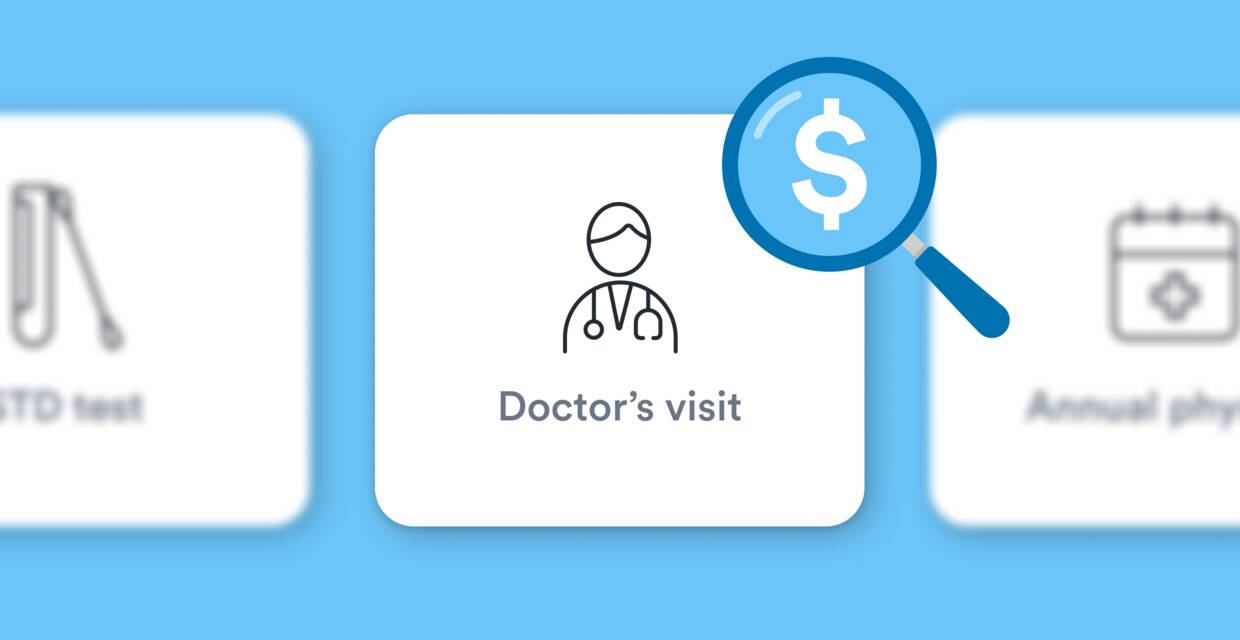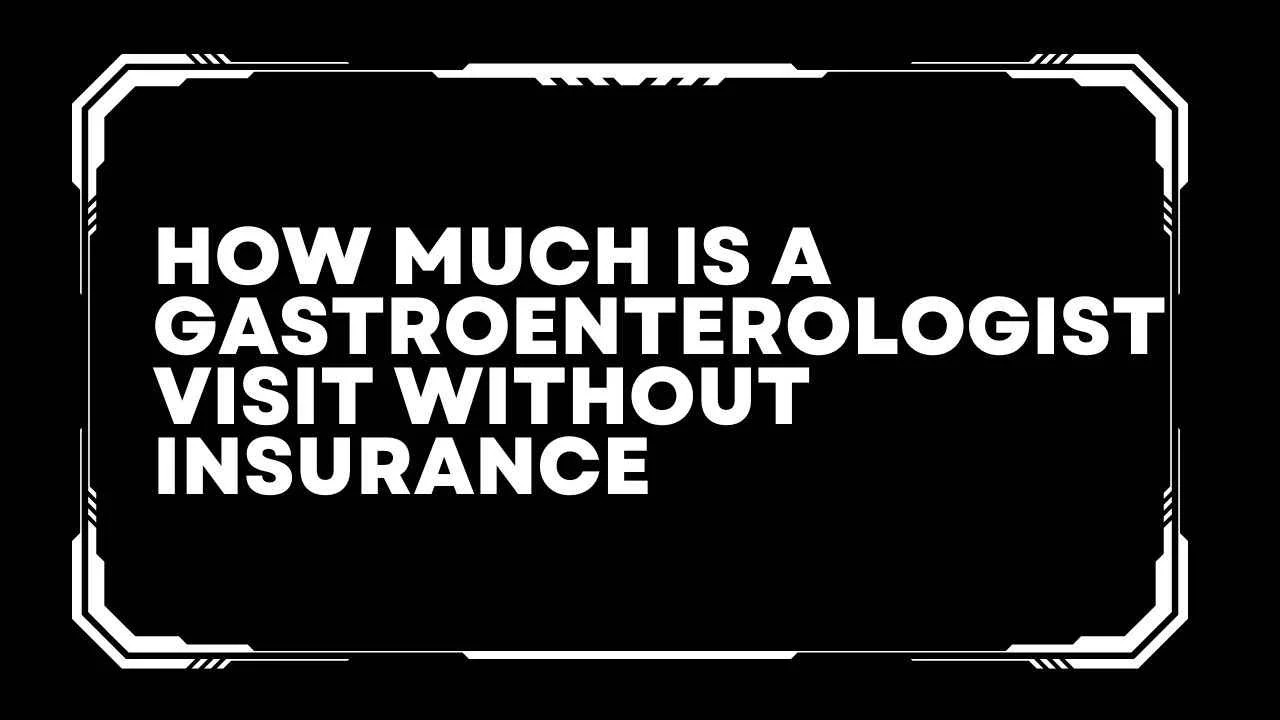Home>Finance>How Much Does An ENT Visit Cost Without Insurance?


Finance
How Much Does An ENT Visit Cost Without Insurance?
Published: November 8, 2023
Find out the cost of an ENT visit without insurance and discover finance options for affordable healthcare.
(Many of the links in this article redirect to a specific reviewed product. Your purchase of these products through affiliate links helps to generate commission for LiveWell, at no extra cost. Learn more)
Table of Contents
Introduction
When it comes to taking care of our health, visits to medical specialists are sometimes necessary. One such specialist is an Ear, Nose, and Throat (ENT) doctor, also known as an otolaryngologist. These doctors specialize in diagnosing and treating conditions affecting the ears, nose, throat, and related structures.
However, for those without insurance coverage, the cost of an ENT visit can be a concern. Without the financial safety net that insurance provides, it’s essential to understand the potential costs involved and explore ways to save money.
In this article, we will delve into the average cost of an ENT visit without insurance and explore the factors that can affect the pricing. We will also provide some practical tips to help you save money on your visit to an ENT specialist.
Please note that the costs mentioned in this article are general estimates and can vary based on several factors such as location, doctor’s experience, clinic or hospital fees, and the specific services required during your visit. It’s always best to contact the healthcare provider directly for precise pricing information.
Now, let’s dive into the details of how much an ENT visit without insurance might cost and what factors can influence that cost.
Average Cost of an ENT Visit without Insurance
The cost of an ENT visit without insurance can vary significantly depending on several factors. On average, you can expect to pay between $150 and $300 for a routine consultation with an ENT specialist. This cost usually includes the examination and diagnosis of your condition.
However, keep in mind that additional tests, procedures, or treatments may incur additional charges. For example, if you require a hearing test, nasal endoscopy, or minor surgical procedure such as tonsillectomy, the overall cost will be higher.
It’s important to note that fees can differ based on the location of the healthcare provider. In metropolitan areas or cities with a higher cost of living, the overall charges may be slightly higher compared to rural areas.
Furthermore, the experience and reputation of the ENT specialist can also influence the cost. Established doctors with years of expertise and a high demand may charge more for their services compared to those who are just starting their practice.
It’s worth mentioning that the cost of an ENT visit can be more affordable at community health clinics or teaching hospitals, where fees are often lower due to their nonprofit or educational nature.
If you require any specialized tests or treatments such as allergy testing, audiology services, or sleep studies, it’s important to consider the additional costs associated with these services. They can range from $100 to $500 or more, depending on the complexity of the procedure.
Before proceeding with any diagnostic tests or treatments, it’s advisable to discuss the potential costs with your ENT specialist and inquire about any available payment plans or financial assistance programs that can help reduce the financial burden.
In the next section, we will explore the factors that can affect the cost of an ENT visit without insurance.
Factors Affecting the Cost of an ENT Visit without Insurance
Several factors can influence the cost of an ENT visit without insurance. It’s essential to be aware of these factors so that you can anticipate and plan for potential expenses. Here are some key factors to consider:
1. Services Required
The specific services you need during your ENT visit will significantly impact the overall cost. Routine consultations for general ear, nose, and throat issues tend to be less expensive, while more specialized tests, procedures, or surgeries will increase the cost. Understand the services recommended by your doctor and their associated fees to better estimate the expenses.
2. Diagnostic Tests
If your condition requires diagnostic tests such as audiology exams, imaging tests (CT scans, MRI), or allergy testing, these additional procedures can add to the overall cost. Each test has its own associated fees, so it’s important to discuss the necessity and potential costs of these tests with your ENT specialist.
3. Location
The geographical location of the healthcare provider can impact the cost of an ENT visit. In areas with a higher cost of living or greater demand for medical services, prices may be slightly higher compared to rural or less populated regions. Consider seeking out healthcare providers in more affordable areas if feasible.
4. Doctor’s Experience and Reputation
The experience and reputation of the ENT specialist may influence the cost of the visit. Established doctors with extensive experience and a strong reputation may charge higher fees for their services. Conversely, less experienced or newly practicing doctors may have more affordable rates. Consider your own preferences and budget when deciding on a healthcare provider.
5. Clinic or Hospital Fees
The type of facility where your ENT visit takes place can affect the overall cost. Private clinics or specialty hospitals might charge higher fees compared to public or nonprofit community health clinics. It’s worth considering different healthcare facilities and their associated costs when planning your visit.
Understanding these factors can help you navigate the potential expenses of an ENT visit without insurance. In the next section, we will explore some practical ways to save money on your visit to an ENT specialist.
Ways to Save Money on an ENT Visit without Insurance
While the cost of an ENT visit without insurance may seem daunting, there are several strategies you can implement to save money and minimize expenses. Here are some practical ways to help you reduce the financial burden:
1. Research and Compare Prices
Before scheduling an appointment, research different healthcare providers in your area and compare their prices. Call the clinics or hospitals and inquire about their fees for an initial consultation and any additional services you may require. By doing this, you can find an affordable option that meets your needs.
2. Look for Community Health Clinics
Community health clinics often offer medical services at reduced costs or on a sliding scale based on your income. These clinics are a great option for people without insurance who are seeking affordable healthcare. Contact local community health centers to inquire about their ENT services and fees.
3. Inquire about Payment Plans
Many ENT specialists understand the financial challenges their patients face and may offer payment plans to help spread out the cost of your visit. Discuss this possibility with the healthcare provider or their billing department to see if you can arrange a payment plan that suits your budget.
4. Seek Out Nonprofit Organizations
There are nonprofit organizations that provide assistance for individuals without insurance who require medical care. These organizations may offer financial aid, discounted services, or resources to help cover the cost of an ENT visit. Research and reach out to these organizations to see if you qualify for any assistance.
5. Consider Telehealth Options
In recent years, telehealth has gained popularity as a convenient and cost-effective way to receive medical consultations. Many ENT specialists offer telehealth appointments, allowing you to consult with them remotely. Telehealth visits tend to be more affordable than in-person consultations, and you can save on travel costs as well.
6. Ask for Generic Medications
If your ENT specialist prescribes medication for your condition, inquire if there are generic or more affordable alternatives available. Generic medications can often provide the same benefits as brand-name versions but at a lower cost. Discuss your budgetary concerns with your doctor, who can recommend cost-effective options.
By implementing these strategies, you can significantly reduce the financial burden of an ENT visit without insurance. However, it’s important to remember that your health should always be a priority, so seek medical attention when necessary and explore these cost-saving options to make healthcare more accessible.
Final Thoughts
Visiting an ENT specialist without insurance can be a financial challenge, but there are ways to navigate the costs and still receive the care you need. Understanding the average cost of an ENT visit, considering the factors that can influence the pricing, and exploring strategies to save money are crucial steps in managing your healthcare expenses.
Remember to thoroughly research healthcare providers in your area, compare prices, and inquire about payment plans or financial assistance programs. Community health clinics and nonprofit organizations can also be valuable resources for affordable ENT services.
Additionally, telehealth options have become more prevalent and can offer a cost-effective alternative for consultations with ENT specialists. Take advantage of these virtual visits to potentially save on both consultation fees and travel expenses.
While it’s important to be mindful of your budget, don’t compromise on your health. Seek medical attention when necessary, as timely diagnosis and treatment can prevent more significant and expensive issues down the line.
Lastly, it’s worth considering obtaining health insurance coverage to help alleviate the financial burden of healthcare. Explore available options and assess the benefits of having insurance coverage for routine visits and unexpected medical needs.
Ultimately, with careful planning and strategic decision-making, it is possible to manage the cost of an ENT visit without insurance. By being proactive and informed, you can prioritize your health while being mindful of your financial well-being.














